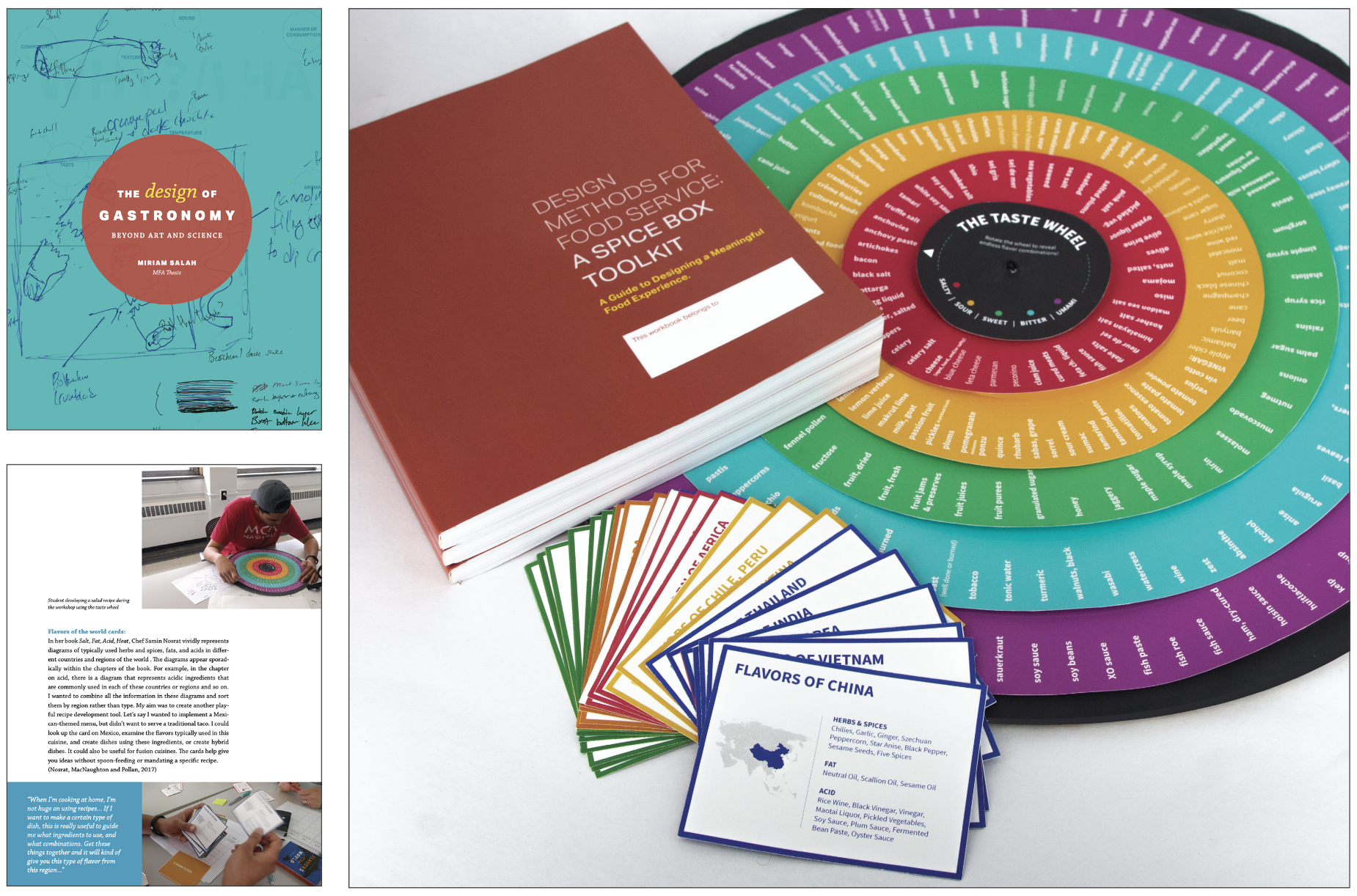THESIS CHAIR
- Salah, Miriam, “Food and Design Thinking,”
MFA in Graphic Design, Graduated Spring 2020. Currently a Postdoctoral Research Fellow at the Siebel Center for Design, Urbana-Champaign, Illinois. - Melton, Rachel, “Creative Economies in Rural Spaces,”
MFA in Graphic Design, Graduated Fall 2020. Currently a Multimedia Designer on the Marketing Team at World Relief, Urbana-Champaign, Illinois.
THESIS COMMITTEE
- Lou, Zhi, “Designed Dissent — Navigating Agency through Times of Information Crisis,”
MFA in Design for Responsible Innovation, Graduated May 2023. Currently a Ph.D. Student in the Communication Program at the University of Wisconsin, Madison, Wisconsin. - Oladeji, Faithful, “Architecture and Design Research,”
MFA in Design for Responsible Innovation, Graduated May 2022,
Currently a User Interface and User Experience Designer at Welldoc, Columbia, Maryland. - Dailey, Keenan, “1104,”
MFA in Graphic Design, Graduated May 2021. Currently works as a Freelance Artist and Designer. - Gonzalez, Carolina, “Developing Engagement on Instagram through Storytelling,”
MFA in Graphic Design, Graduated May 2020. Currently the Co-Founder & Creative Director of Happer Agency, Monterrey, Mexico. - Landrum, Brock, “Postmodernism Philosophy,”
MFA in Graphic Design, Graduated May 2019. Currently an Assistant Professor of Art at the University of Southern Utah, Cedar City, Utah. - Moon, Eunmi, “Empathic Methods of Design,”
MFA in Graphic Design, Graduated May 2019. Currently a Ph.D. Applicant in the Informatics Program, UIUC. - Tucker, Zack, “Humanist Interfaces,”
MFA in Graphic Design, Graduated May 2019. Currently an Assistant Professor of Communication/Experience Design at Miami University, Oxford, Ohio.
Miriam Salah, MFA
Culinary schools are witnessing a rising demand partly from students seeking to follow the footsteps of celebrity chefs. Still adopting a master-apprentice model based on traditional French customs, many culinary arts programs are not meeting the expectations of this category of students. This prompted some educators in the culinary field to propose integrating design courses into their educational framework in order to foster students’ creative and analytical skills.
The aim of this research study is to produce the necessary tools to help meet these demands and to prove that design can be an important pedagogical tool in culinary education. It does so through the design of a toolkit tailored for the hospitality management program at the University of Illinois and studies the effects of using the design research process and methods during the time when students are developing their dining experiences at the school’s student-operated restaurant. The principles of this toolkit lie at the intersection of user-centered design and critical design. The research is also inspired by the practices and philosophies of modernist chefs such as Ferran Adrià, Grant Achatz, and others who use their expertise to create dining experiences that engage the senses, encourage reflection, and challenge preconceived notions around food.
The set of tools that are introduced through a series of workshops aims to help students conceptualize and create meaning through their edible creations. The workshop was conducted three times and the toolkit was further improved after every trial to support the students’ creative process that ultimately resulted in a dining experience. Data was collected at different stages of the process through interviews, surveys, content analysis, and focus groups before and after the implementation of their dinners. This work resulted in an empirical understanding of the effects of applying the design research process, which verified the need for such tools to instigate change in the food service domain.
Rachel Melton, MFA
Many rural places, defined as communities with less than 50,000 inhabitants, have a well-developed sense of place and identity and a strong sense of social connection, but simultaneously experience a lack of creative opportunities and programming. Involvement in the arts and in cultural and creative activities increases academic success and community engagement for individuals of all ages.
Research also shows that rural communities are nearly as likely as their urban counterparts to participate in artistic and creative initiatives when those initiatives are less formal than is traditionally expected. This study shows how rural communities can utilize connections with artists and designers to build a greater sense of social connection and
place-based identity while capitalizing on the day-to-day benefits of arts involvement to develop stronger arts-based economies. Qualitative methods, including surveys, interviews, cultural probes, and case studies, yield data on the perception of identity, place, and the arts in Northwest Tennessee. By analyzing this data, themes are discovered surrounding perspectives, trends, and barriers to arts engagement in a rural context. Current examples are explored in which artists and designers in educational, professional and volunteer capacities engage with these themes and barriers to enhance support of the arts and creative industries in rural places.
This study shows how rural community engagement in the arts and design yields an increased sense of place and identity with mutually beneficial outcomes for individuals, organizations, and the community as a whole.






